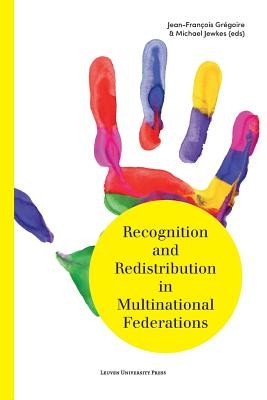
- Išsiųsime per 10–14 d.d.
- Leidėjas: Leuven University Press
- Metai: 2015
- Puslapiai: 256
- ISBN-10: 9462700249
- ISBN-13: 9789462700246
- Formatas: 15.2 x 23.1 x 1.5 cm, minkšti viršeliai
- Kalba: Anglų
- Extra -15 % nuolaida šiai knygai su kodu: ENG15
Recognition and Redistribution in Multinational Federations + nemokamas atvežimas! | knygos.lt
Atsiliepimai
Aprašymas
Almost without exception, multinational states across the West are facing existential crises precipitated by the resurgence of sub-state national minority groups. This book brings together many of the world's leading theorists of multinational justice to analyze two of the most frequent areas of debate and dispute in multinational federations: recognition and redistribution.The authors address questions such as the following: What are the most appropriate forms of institutional recognition for sub-state national groups? How is the concept of redistributive justice affected by the presence of federal institutions and autonomous sub-state nationalities? And what are the potential sources of stability that fractious federations can call upon? As well as extensive theoretical analyses, the book is peppered throughout with examples drawn from actual multinational states including Canada, Belgium, Spain, and the United Kingdom.Contributors: Jean-François Grégoire (KU Leuven), Michael Jewkes (KU Leuven), Helder De Schutter (KU Leuven), Antoon Vandevelde (KU Leuven), Alain-G. Gagnon (Université du Québec à Montréal), Geneviève Nootens (Université du Québec à Chicoutimi), Philippe Van Parijs (Université Catholique de Louvain), François Boucher (University of Montreal), Jocelyn Maclure (Université Laval), Andrew Shorten (University of Limerick), David Robichaud (University of Ottawa), Ferran Requejo (Universitat Pompeu Fabra), Marc Sanjaume (Université du Québec à Montréal).
EXTRA 15 % nuolaida
Kupono kodas: ENG15
Akcija baigiasi už 5d.21:11:56
Nuolaidos kodas galioja perkant nuo 10 €. Nuolaidos nesumuojamos.

- Leidėjas: Leuven University Press
- Metai: 2015
- Puslapiai: 256
- ISBN-10: 9462700249
- ISBN-13: 9789462700246
- Formatas: 15.2 x 23.1 x 1.5 cm, minkšti viršeliai
- Kalba: Anglų
Almost without exception, multinational states across the West are facing existential crises precipitated by the resurgence of sub-state national minority groups. This book brings together many of the world's leading theorists of multinational justice to analyze two of the most frequent areas of debate and dispute in multinational federations: recognition and redistribution.The authors address questions such as the following: What are the most appropriate forms of institutional recognition for sub-state national groups? How is the concept of redistributive justice affected by the presence of federal institutions and autonomous sub-state nationalities? And what are the potential sources of stability that fractious federations can call upon? As well as extensive theoretical analyses, the book is peppered throughout with examples drawn from actual multinational states including Canada, Belgium, Spain, and the United Kingdom.Contributors: Jean-François Grégoire (KU Leuven), Michael Jewkes (KU Leuven), Helder De Schutter (KU Leuven), Antoon Vandevelde (KU Leuven), Alain-G. Gagnon (Université du Québec à Montréal), Geneviève Nootens (Université du Québec à Chicoutimi), Philippe Van Parijs (Université Catholique de Louvain), François Boucher (University of Montreal), Jocelyn Maclure (Université Laval), Andrew Shorten (University of Limerick), David Robichaud (University of Ottawa), Ferran Requejo (Universitat Pompeu Fabra), Marc Sanjaume (Université du Québec à Montréal).




Atsiliepimai